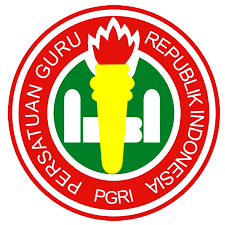Pengaruh Medan Magnet Terhadap Efisiensi Bahan Bakar dan Unjuk Kerja Mesin
Keywords:
magnetic field, fuel consumption, engine performanceAbstract
Automotive technology development increase society need for transportation. It increase the demand of fossil fuel. This research is aimed to get the effect of magnetic field due to fuel consumption and engine performance. The experiment is done with Suzuki Smash 110 cc engine. Magnetic field is vary by electric current input as 1,2; 0,8 and 0,6 Ampere. The engine is running at 1750, 2000, 2250 and 2500 rpm. The result shows that the magnetic field has effect due to fuel consumption and engine performance. Magnetic field has lower fuel consumption and more thermal efficiency.
References
Suwondo, Joko. 2012. Pengaruh Pemanasan Bahan Bakar Dengan Media Radiator Terhadap Konsumsi Bahan Bakar Dan Kandungan Pada Motor Bensin. Skripsi, Teknik Mesin, Universitas PGRI Banyuwangi, Banyuwangi
P. Siregar, Hooutman. 2007. Pengaruh Elektromagnetik Terhadap Jumlah Lilitan. (http://www.koranjitu.com/lifestyle/tips-tips/tips tips%20seputar%20kendaraan/detail_berita.php?ID=4346, diakses 4 Januari 2012)
New Step 1. Jakarta : PT. Toyota Astra Motor
Anonim. 2012. Hidrokarbon. (http://www.worldcoal.org/coal/uses-of-coal/coal-electricity/, retrieved 07/03/2012, diakses 12 desember 2012)
Anonim. 2012. Medan Magnetik. (http://www.magnetizer.com, diakses 5 Januari 2012)
Anonim. 2012. Pengiritan Bahan Bakar Motor Plus. (http://www.motorplus-online.com, diakses 7 Januari 2012)
New Step 2. Jakarta : PT. Toyota Astra Motor
Downloads
Published
How to Cite
Issue
Section
License
uthors who publish with this journal agree to the following terms:
1. Copyright on any article is retained by the author(s).
2. The author grants the journal, the right of first publication with the work simultaneously licensed under a Creative Commons Attribution License that allows others to share the work with an acknowledgment of the work’s authorship and initial publication in this journal.
3. Authors are able to enter into separate, additional contractual arrangements for the non-exclusive distribution of the journal’s published version of the work (e.g., post it to an institutional repository or publish it in a book), with an acknowledgment of its initial publication in this journal.
4. Authors are permitted and encouraged to post their work online (e.g., in institutional repositories or on their website) prior to and during the submission process, as it can lead to productive exchanges, as well as earlier and greater citation of published work.
5. The article and any associated published material is distributed under the Commons Attribution 4.0 International License.




















